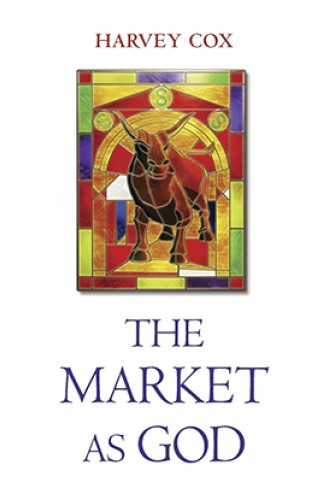In his explanation of the first article of the creed, Martin Luther wrote that a god is that from which we expect all good things and to which we take refuge in times of trouble. Although he does not include Luther’s aphorism in his new book, Harvey Cox makes it clear that the market economy has become our god in Luther’s sense. Cox takes his inspiration from (and dedicates the book to) Pope Francis, who in Evangelii gaudium spoke of the return of Golden Calf idolatry to our world today, in the form of the worship of money and the deification of the market.
Cox, who teaches at Harvard Divinity School, has reflected in a timely fashion on American culture throughout his long career: I first read his best-selling The Secular City in 1965. This new book, which offers theological perspectives on the market economy, would have been timely at any point in the last quarter century. But it is critically important today, when American society is fully encompassed in the market and every individual’s life depends on the market’s behavior.
Cox’s method employs the history of biblical and religious images to interpret the business world. While the bulk of the book contains historical material, it concludes with proposals for reforming the market. It reminds me of Karl Barth’s urging us to read the Bible in one hand with the daily newspaper in the other. In fact, as Cox prepared to write this book he followed a friend’s advice that he begin his newspaper reading with the business section. He recognized that the business pages were in themselves a theologically charged domain begging for interpretation.






